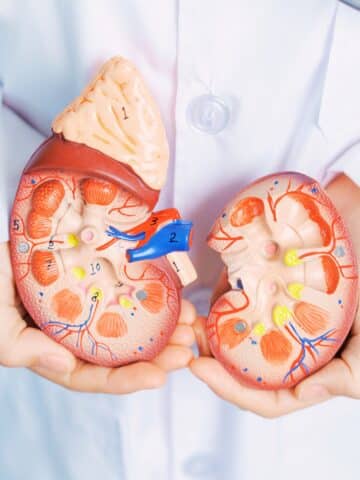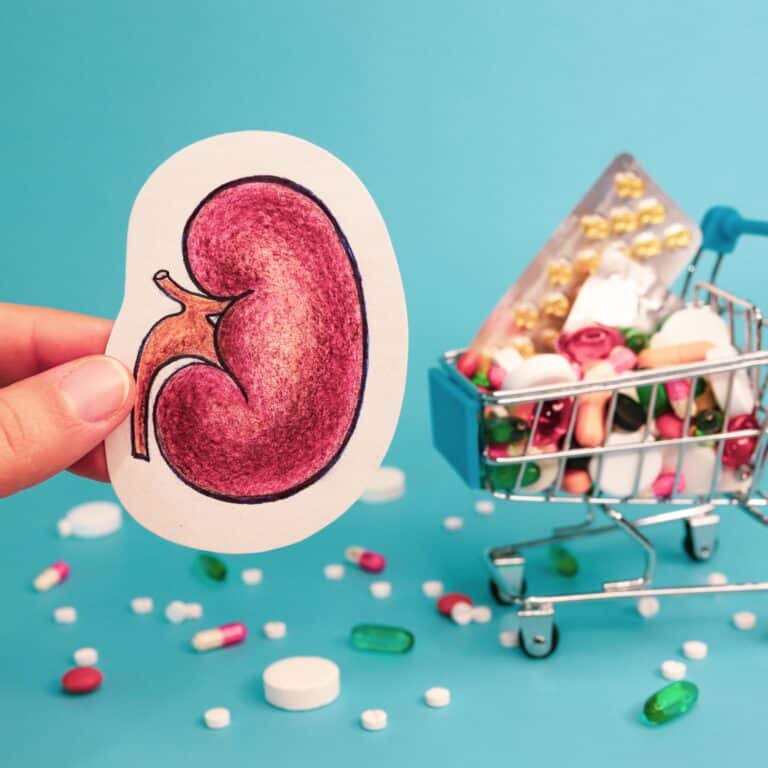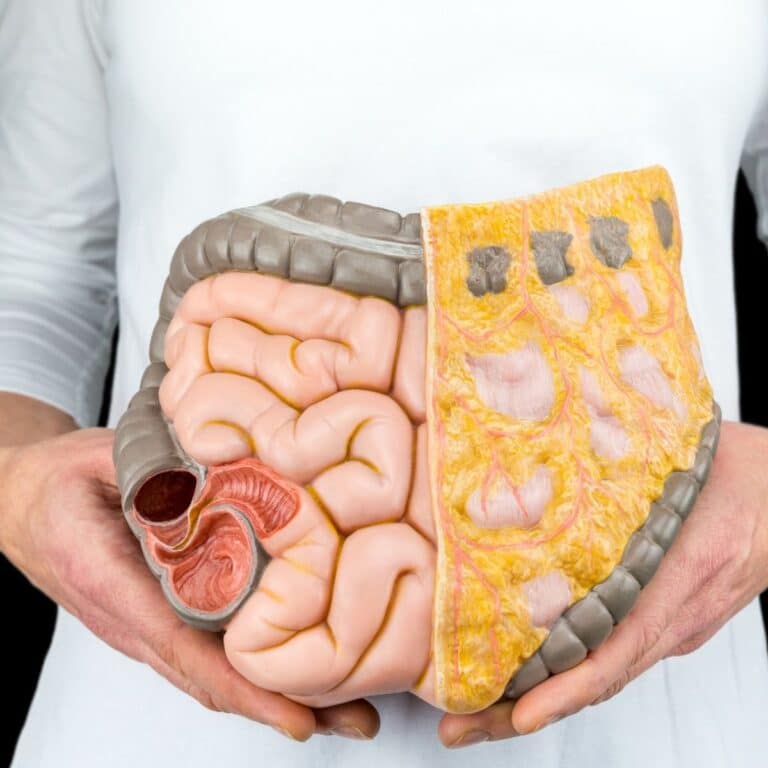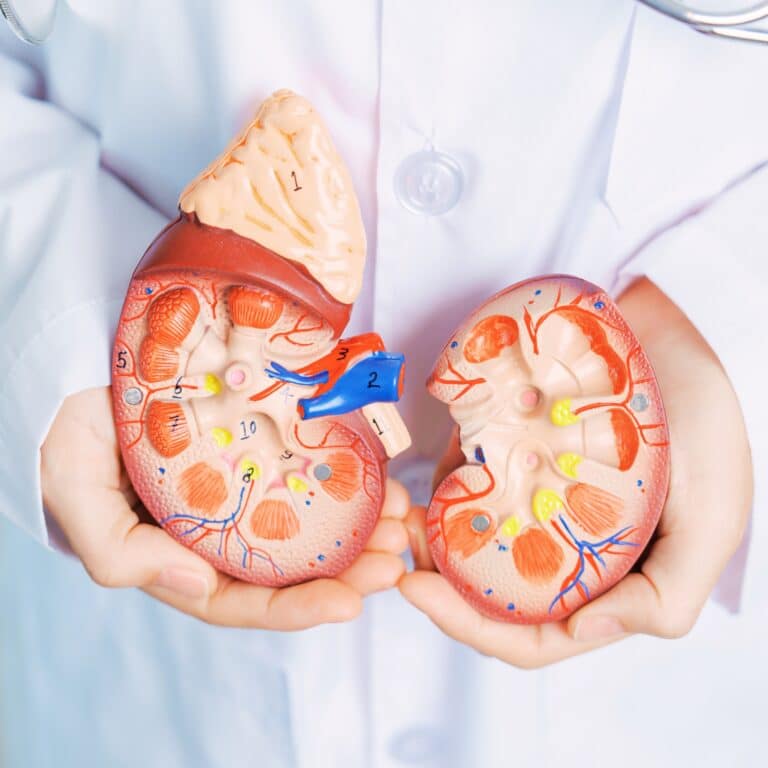Kidney Disease And Anemia
Are you or someone you know living with chronic kidney disease (CKD)? If so, it's important to understand the potential complications that can arise, such as anemia.
Anemia occurs when there are not enough healthy red blood cells in the body, and is a common complication in CKD affecting more than one in seven people with the condition. Anemia can cause a range of symptoms including fatigue, weakness, and shortness of breath.
Early detection and correction of anemia is important on in order to improve outcomes for patients with kidney disease. In this article, we will provide an overview of the causes, symptoms, diagnosis, treatment options, complications, and ongoing research related to anemia in CKD.
As a Registered Dietitian with over 25 years of experience, I specialize in helping individuals manage Chronic Kidney Disease (CKD) through evidence-based nutrition. My expertise is rooted in both professional training and personal experience, having supported my mother and father through their own CKD journeys by implementing dietary strategies to slow disease progression. I am committed to providing accurate, up-to-date information on kidney health, ensuring that all recommendations align with national guidelines and scientific research to empower individuals in making informed dietary choices.
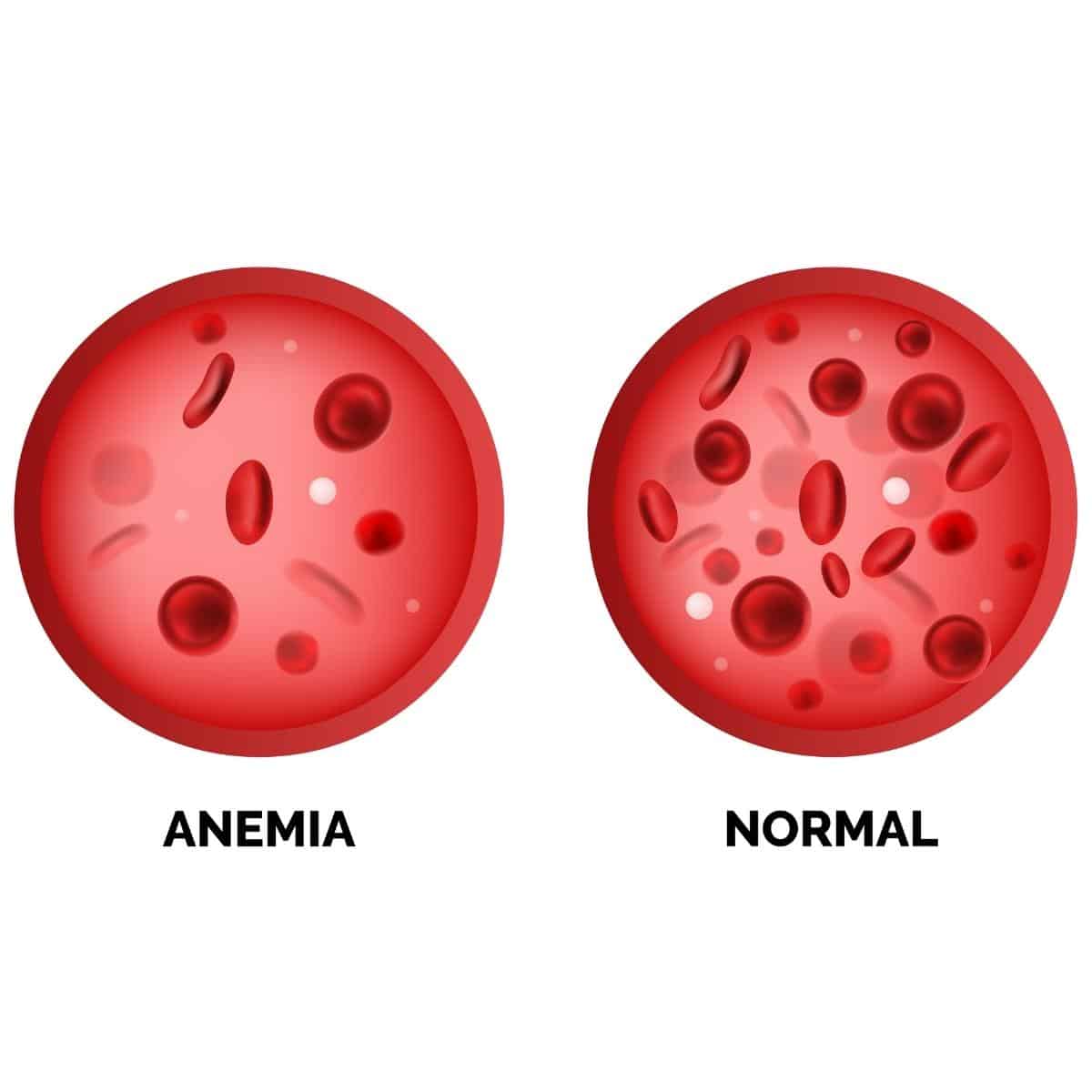
You may even want to ask yourself questions like can kidney disease cause heart problems, hopefully, this article helps to answer ALL of your questions about CKD!
By understanding these factors and taking action early on, you can help manage your condition and improve your overall health and well-being.
Jump to:
- What to Know About Kidney Disease and Anemia
- Causes of Anemia in CKD
- Symptoms and Diagnosis
- Risk Factors
- Treatment Options
- Complications
- Iron Deficiency
- can iron deficiency cause kidney problems?
- Erythropoiesis-Stimulating Agents (ESAs)
- Diet and Nutrition
- Clinical Trials and Research
- Hemoglobin Target Levels
- Questions About Anemia and CKD
- Anemia Is Manageable
What to Know About Kidney Disease and Anemia
- Anemia is a common complication of chronic kidney disease (CKD) and can cause symptoms such as fatigue, weakness, and shortness of breath.
- Iron deficiency is a common cause of anemia in people with CKD, and treatment options include erythropoiesis-stimulating agents (ESAs), iron supplementation, and red blood cell transfusions.
- Anemia can increase the risk of cardiac disease and strokes in people with CKD, and early treatment can help slow the progression of the disease.
- Researchers are actively studying new treatments and potential underlying causes of anemia in CKD
For More Recipes and Ideas --->> Get Your Free Meals and Recipes That Are Perfect for Pre-Dialysis Diets, Pre-Dialysis with Diabetes, or Dialysis Diets.
Causes of Anemia in CKD
In chronic kidney disease (CKD), anemia is a common complication that can significantly impact your health. There are several mechanisms of anemia that contribute to the development of this condition in CKD.
- Firstly, impaired kidney function affects the production of erythropoietin (EPO), a hormone produced by the kidneys that stimulates the production of red blood cells in the bone marrow. As your kidneys become damaged, they are unable to produce sufficient amounts of EPO, leading to decreased red blood cell production and subsequently causing anemia.
- Additionally, CKD affects the balance of iron in your body. Iron is essential for the production of hemoglobin, the protein responsible for carrying oxygen in the blood.
- In CKD, iron deficiency often occurs due to decreased absorption of iron from the gastrointestinal tract, blood loss during dialysis, or increased iron sequestration within the body. Insufficient iron levels result in inadequate hemoglobin production, exacerbating anemia.
Furthermore, CKD can lead to the accumulation of uremic toxins in the bloodstream. These toxins can directly impair the function and lifespan of red blood cells, contributing to anemia.
Additionally, inflammation associated with CKD further worsens anemia by suppressing the production and response to EPO, impairing iron metabolism, and accelerating red blood cell destruction.
Treatment of anemia may include erythropoiesis-stimulating agents (ESAs) to stimulate red blood cell production, iron supplementation to correct iron deficiency, and blood transfusions in severe cases.
Regular monitoring of your hemoglobin levels and working closely with your healthcare team are essential to effectively manage anemia and improve your overall well-being.
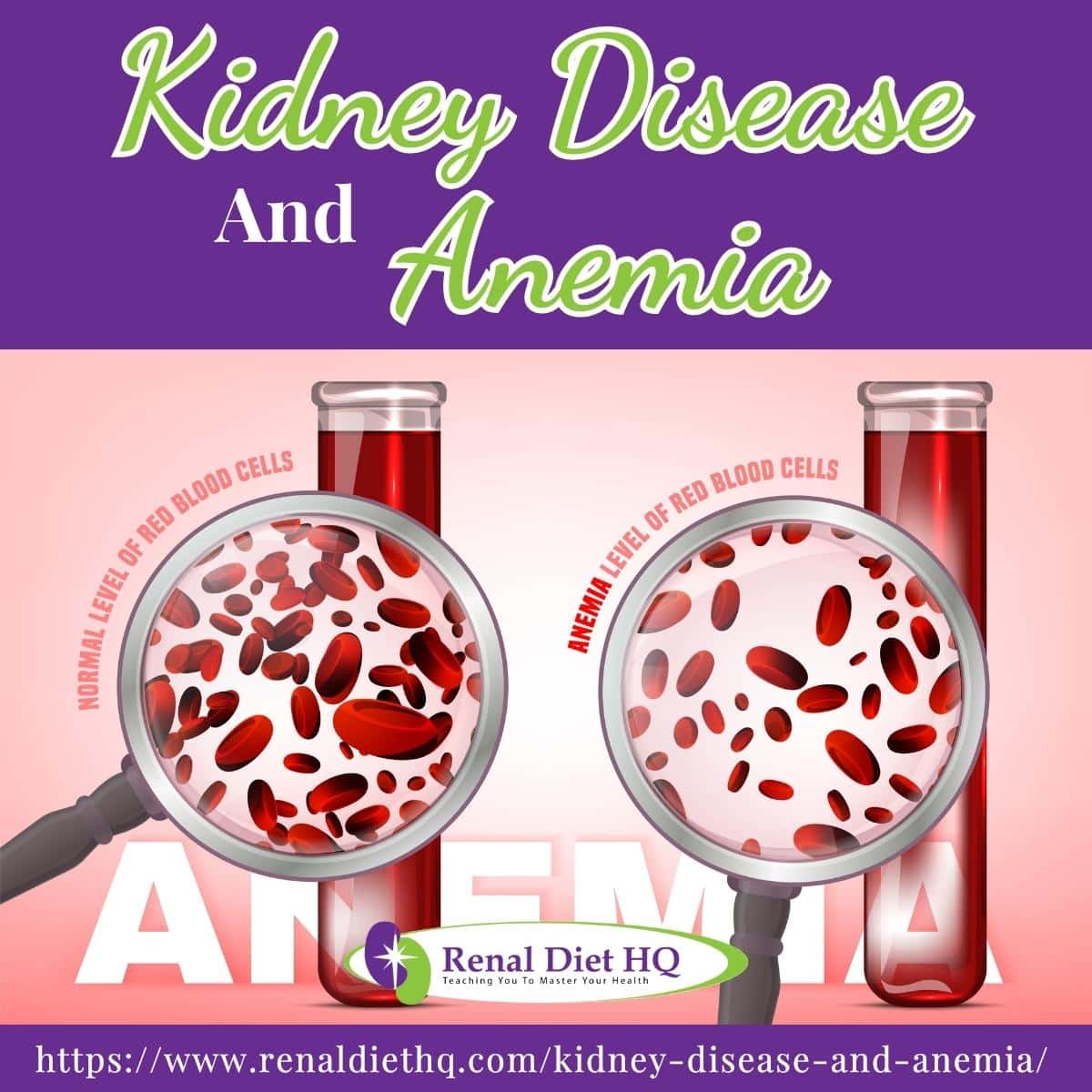
Symptoms and Diagnosis
The symptoms of anemia in chronic kidney disease can vary, but some common signs include feeling tired, weak, short of breath, and experiencing headaches and chest pain. These symptoms can be caused by a lack of oxygen in the body due to a shortage of red blood cells.
It's important to note that these symptoms may also be present in other medical conditions, making accurate diagnosis crucial.
Diagnosing anemia in chronic kidney disease requires laboratory testing to determine the number and size of red blood cells, hemoglobin levels, and number of developing red blood cells. This process helps differentiate anemia from other conditions with similar symptoms.
Early detection is key as treatment effectiveness is dependent on identifying the underlying cause. Early stage kidney disease is equally important.
Once diagnosed with anemia in chronic kidney disease, it's essential to receive proper treatment as soon as possible. This may involve iron or vitamin supplements or erythropoiesis-stimulating agents (ESAs) to encourage the production of more red blood cells.
Accurate diagnosis and timely treatment of anemia are critical for managing this condition effectively and improving overall health outcomes.
Risk Factors
If you have chronic kidney disease (CKD), there are several risk factors that increase your likelihood of developing anemia.
Firstly, the severity and progression of your kidney disease play a significant role. As your kidney function declines, the risk of developing anemia increases. If you have advanced CKD or end-stage renal disease (ESRD), the chances of developing anemia are higher.
Other risk factors include the presence of comorbidities such as diabetes mellitus or hypertension, which are common causes of CKD. These conditions can further worsen kidney function and contribute to anemia.
Additionally, certain medications commonly used in the management of CKD, such as ACE inhibitors or angiotensin receptor blockers, may increase the risk of anemia.
Furthermore, nutritional deficiencies can play a role. Inadequate iron uptake or absorption of vitamin B12, or folic acid can contribute to anemia in CKD. It is important to ensure a balanced diet and appropriate supplementation, if necessary.
Sex also plays a role, as anemia tends to be more prevalent in females with CKD compared to males. Hormonal factors, including menstrual blood loss, contribute to this increased risk.
Understanding these risk factors can help you and your healthcare team identify and manage anemia effectively.
Regular monitoring of your kidney function, nutritional status, and hemoglobin levels, along with appropriate interventions and treatment for anemia, can help mitigate the risk and impact of this complication in CKD.
Treatment Options
Let's explore some ways to treat low red blood cell levels in chronic kidney disease.
Iron supplementation is often used to increase the production of red blood cells. In fact, non-dialysis patients should maintain transferrin saturation above 20% and ferritin above 100 ng/mL by taking iron supplements. However, it is important to note that transferrin saturation should not exceed 30%, and ferritin levels should not exceed 500 ng/mL.
In some cases, blood transfusions may be necessary for severe anemia in CKD patients. However, this treatment option comes with its own risks and should be discussed with a healthcare professional.
Another treatment option for anemia in CKD is erythropoiesis-stimulating agents (ESAs), which stimulate the bone marrow to produce more red blood cells. While ESAs can effectively treat anemia, they do come with potential side effects such as high blood pressure and increased risk of heart attack or stroke.
In addition to medical treatments, dietary recommendations may also help manage anemia in CKD patients. A healthcare professional or dietitian can develop a meal plan that includes foods rich in iron and other nutrients needed for red blood cell production.
Overall, treating anemia in CKD requires individualized care and attention from a healthcare team to find the best approach for each patient's unique situation.
| Treatment Option | Pros | Cons |
| Iron Supplementation | Effective at increasing RBC production | May cause constipation or upset stomach |
| Blood Transfusions | Can quickly raise RBC levels | Risk of infection or allergic reaction |
| Erythropoietin Stimulating Agent | Stimulates bone marrow to produce more RBCs | Increased cardiovascular risk |
Complications
Managing the complications of low red blood cell levels in chronic kidney disease is crucial for maintaining overall health and quality of life.
If you have chronic kidney disease (CKD) and develop renal anemia, it can lead to several complications that can significantly impact your health.
Firstly, renal anemia related symptoms such as fatigue, weakness, and shortness of breath, can greatly reduce your quality of life and limit your ability to perform daily activities.
Anemia in CKD can also worsen cardiovascular disease. With reduced oxygen-carrying capacity, your heart has to work harder to pump an adequate amount of oxygen to the body's tissues. This can lead to an increased risk of heart problems, including congestive heart failure, angina, and abnormal heart rhythms.
Furthermore, anemia can negatively impact your kidney disease progression. Insufficient oxygen supply to the kidneys can further damage the already compromised renal function, leading to a vicious cycle of worsening kidney health.
Anemia also affects your body's ability to fight infections and heal wounds. With a weakened immune system, you are more susceptible to infections and have a slower recovery rate.
Additionally, renal anemia has been associated with cognitive impairments and decreased cognitive function in CKD patients. This can manifest as difficulties in concentration, memory loss, and overall mental sluggishness.
It is important to work closely with your healthcare team to manage anemia effectively in CKD. Treatments may include medications to stimulate red blood cell production, iron supplementation, and addressing any underlying nutritional deficiencies.
By managing anemia, you can reduce the risk of complications and improve your overall well-being.
Iron Deficiency
If you have chronic kidney disease, iron deficiency is a common concern that can significantly impact your health. CKD often disrupts the normal balance of iron in your body, leading to insufficient iron levels. There are several reasons why iron deficiency anemia occurs in CKD.
CKD can disrupt iron metabolism. The kidneys play a crucial role in the regulation of iron levels by reabsorbing and conserving iron. However, as kidney function deteriorates, this regulatory mechanism becomes impaired, leading to decreased iron reabsorption and increased iron loss through urine. This contributes to iron deficiency and exacerbates renal anemia.
Dietary restrictions and poor appetite are common in CKD. These restrictions, coupled with decreased iron absorption in the gut, can further contribute to inadequate iron intake and iron deficiency.
Iron deficiency can have significant consequences on your health. It can cause symptoms of anemia such as fatigue, weakness, shortness of breath, and decreased exercise tolerance. It can also impact health-related quality of life and exacerbate other complications associated with CKD.
Managing iron deficiency in CKD is essential. Your healthcare provider may recommend iron supplementation to replenish iron stores and stimulate red blood cell production. In some cases, intravenous iron (I.V. iron) therapy may be necessary.
In some cases, underlying conditions such as gastrointestinal bleeding or cancer may cause anemia that cannot be treated with iron supplementation or dietary changes alone.
In these situations, blood transfusions may be necessary. However, it's important to discuss the potential risks and adverse events associated with blood transfusions with your healthcare professional before proceeding with this treatment option.
It is important to work closely with your healthcare team to monitor iron levels, optimize iron intake, and address iron deficiency effectively. By managing iron deficiency, you can alleviate symptoms, improve your quality of life, and potentially enhance the effectiveness of other treatments for CKD.
can iron deficiency cause kidney problems?
Iron deficiency itself does not directly cause kidney problems; however, it plays a significant role in the development of anemia, which is a common complication in individuals with chronic kidney disease (CKD). The kidneys produce erythropoietin (EPO), a hormone that stimulates red blood cell production.
In CKD, damaged kidneys often produce insufficient EPO, leading to reduced red blood cell counts and anemia. Iron is essential for hemoglobin production, and a deficiency can further exacerbate anemia by limiting the body's ability to produce healthy red blood cells.
Addressing iron deficiency is crucial for managing anemia in CKD patients. Treatment options may include iron supplementation, erythropoiesis-stimulating agents (ESAs), and red blood cell transfusions. Early detection and correction of anemia can improve outcomes for individuals with kidney disease, enhancing their overall health and well-being.
Erythropoiesis-Stimulating Agents (ESAs)
Now that you've learned about iron deficiency as a common cause of anemia in chronic kidney disease, it's time to discuss the treatment options available. One such option is erythropoiesis-stimulating agents (ESAs).
ESAs are medications that stimulate the bone marrow to produce more red blood cells, which can help address CKD-related anemia. There are several benefits and risks associated with using ESAs.
The main benefit is that they can effectively increase hemoglobin levels and reduce the need for blood transfusions.
However, there are also potential side effects, including high blood pressure, blood clots, and increased risk of heart attack or stroke. Additionally, some anemic patients may develop antibodies to ESAs over time, which can make them less effective.
Dosage guidelines for ESA use vary depending on the patient's individual needs and medical history. Administration techniques may include injections under the skin (subcutaneous injection) or directly into a vein during treatment sessions for patients on dialysis.
Cost analysis is also an important consideration since these medications can be expensive and may not be covered by insurance in all cases.
Overall, while ESAs can be an effective treatment option for anemia in chronic kidney disease patients, it's important to weigh the potential benefits against the risks and consider individualized dosage guidelines and administration techniques.
Consultation with a healthcare professional is essential before starting any new medication regimen for managing kidney disease-related complications like anemia.
Diet and Nutrition
To help improve your overall health and wellbeing, it's important to pay attention to your diet and nutrition when dealing with anemia caused by kidney disease. Here are four things you should keep in mind:
- Meal planning: A balanced meal plan can provide the necessary nutrients to help manage anemia and kidney disease. Your healthcare professional or a registered dietitian can work with you to create a meal plan that meets your individual needs.
- Nutrient deficiencies: Anemia caused by kidney disease is often due to low levels of iron, vitamin B12, and folate. Eating foods rich in these nutrients such as leafy green vegetables, beans, nuts, and meats can help increase their levels in the body.
- Dietary restrictions: Depending on the stage of kidney disease you are experiencing, you may have dietary restrictions such as limiting protein intake or avoiding certain foods like bananas (due to high potassium levels) or high-sodium items. It's important to follow these restrictions as they can play a role in managing anemia.
- Supplements: In some cases, supplements may be recommended if nutrient deficiencies cannot be addressed through diet alone. Some supplements given for anemia include ferrous sulfate, folic acid, and vitamin B12.
Overall, making changes to your diet and nutrition habits can play a significant role in managing anemia caused by kidney disease. Consult with your healthcare professional or registered dietitian for personalized recommendations based on your unique situation.

Clinical Trials and Research
Researchers are currently conducting clinical studies to find new ways of preventing, detecting, or treating anemia in individuals with chronic kidney disease.
One focus is on the gut microbiome and its potential role in anemia development. Studies have shown that alterations in the gut microbiome can lead to inflammation and iron deficiency, both of which contribute to anemia.
Researchers are investigating how changes in diet or probiotic supplementation can modify the gut microbiome and improve anemia outcomes.
Another area of research is focused on novel treatments for anemia in patients with CKD. Some potential therapies include utilizing stem cells to stimulate red blood cell production, using gene therapy to increase erythropoietin levels, and developing drugs that target specific biomarkers involved in anemia development.
Researchers are also considering patient perspectives when it comes to managing anemia in CKD. This includes studying patient preferences for different treatment options and developing strategies to improve adherence to medication regimens.
By understanding the unique challenges faced by anemia in people with kidney disease, researchers hope to develop more effective prevention strategies and treatments that better meet their needs.
Hemoglobin Target Levels
You should know that maintaining optimal hemoglobin target levels is important for managing your anemia in chronic kidney disease. Hemoglobin is a protein responsible for carrying oxygen throughout the body, and low levels of hemoglobin can lead to fatigue, shortness of breath, and other complications.
However, it's important to note that the ideal hemoglobin target level may vary depending on individual circumstances. For hemoglobin, the target levels in patients with CKD is at 10-11.5 g/dL. Adjusting medication to maintain optimal hemoglobin levels is key to managing anemia in chronic kidney disease.
Erythropoiesis-stimulating agents (ESAs) are often prescribed to stimulate red blood cell production, but they shouldn't be used to increase hemoglobin levels above 13 g/dL.
In fact, studies have shown potential risks associated with higher doses of ESAs, such as an increased risk of cardiovascular events. It's important for healthcare professionals to monitor progress and adjust treatment accordingly.
Long-term effects of managing anemia in chronic kidney disease include improved quality of life and potentially slowing ckd progression.
However, it's crucial for patients with anemia to work closely with their healthcare team to develop an individualized treatment plan based on their specific needs and medical history.
Monitoring progress through regular blood tests can also help ensure that optimal hemoglobin levels are being maintained without putting patients at unnecessary risk.
Questions About Anemia and CKD
In people with chronic kidney disease, anemia can often be managed and improved, but it may not be completely cured. Treatment options, such as erythropoiesis-stimulating agents (ESAs) and iron supplementation, can help increase red blood cell production and alleviate anemia symptoms.
However, the underlying kidney dysfunction and impaired erythropoietin production may persist.
By effectively managing anemia through proper medical care and addressing any underlying causes, you can improve your hemoglobin levels, reduce symptoms, and enhance your overall well-being.
Regular monitoring and collaboration with your healthcare team are essential to optimize anemia management in CKD.
In chronic kidney disease, anemia tends to be more common in both men and women, but there is evidence to suggest a slightly higher prevalence in women. Several factors contribute to this disparity, including hormonal factors such as menstrual blood loss in women.
Additionally, certain comorbidities like autoimmune diseases or chronic inflammation, which can increase the risk of anemia, may have different prevalence rates between genders.
It is important to note that anemia can affect both men and women with CKD, and individual factors and disease progression should be considered in determining the specific prevalence within each case.
The gut microbiome can affect anemia in individuals with chronic kidney disease by influencing iron absorption and the inflammation response.
Research has shown that dysbiosis, or an imbalance in the gut microbiota, can lead to impaired erythropoietin production and decreased red blood cell count.
Probiotic supplementation may improve gut health and iron absorption, potentially reducing the severity of anemia in these individuals.
However, further research is needed to fully understand the relationship between the gut microbiome and anemia in chronic kidney disease patients.
While natural remedies cannot cure anemia in chronic kidney disease (CKD), they can complement medical treatments and help improve overall well-being.
Adequate nutrition is crucial, so focus on consuming foods rich in iron, such as lean meats, fish, legumes, and leafy green vegetables. Vitamin C-rich foods can enhance iron absorption, so include citrus fruits, strawberries, and bell peppers in your diet.
Additionally, foods high in folic acid and vitamin B12, like fortified cereals, spinach, and eggs, are beneficial.
Be cautious with herbal supplements, as some can interact with medications.
Maintaining a healthy lifestyle, including regular exercise, adequate sleep, and stress management, can contribute to overall well-being.
Remember, these remedies should be used in conjunction with medical advice and treatment. Always consult your healthcare team to determine the most appropriate and safe approach to managing anemia in CKD.
Long-term complications of erythropoiesis-stimulating agents (ESAs) for treating anemia in chronic kidney disease (CKD) may include an increased risk of cardiovascular events like myocardial infarction, blood clots, and risk of death.
It's important for patients with anemia to be educated on the risks of ESAs and alternative therapies that may improve their quality of life.
Patient education should also emphasize the importance of achieving target hemoglobin levels without exceeding recommended doses to ensure cardiovascular safety.
While ESAs can effectively treat anemia in CKD, healthcare professionals should carefully consider the risks and benefits before prescribing them to their patients. Take a quick look at this renal diet education handout.
In the management of anemia associated with chronic kidney disease (CKD), blood transfusion may be necessary in specific situations. Your healthcare provider will determine if a blood transfusion is required based on several factors.
Transfusion may be considered if your hemoglobin levels are critically low or if you are experiencing severe symptoms such as severe fatigue, shortness of breath, or chest pain.
Additionally, if your anemia is causing complications such as heart failure or severe tissue hypoxia, a blood transfusion may be necessary to rapidly increase your red blood cell count and oxygen-carrying capacity.
Transfusion may also be considered if other treatment options, such as erythropoiesis-stimulating agents (ESAs) or iron supplementation, have not effectively improved your hemoglobin levels.
However, it is important to note that blood transfusion is not a long-term solution and does not address the underlying cause of anemia.
Your healthcare provider will weigh the benefits and risks of a blood transfusion based on your individual situation, considering factors such as your overall health, response to other treatments, and potential complications associated with transfusion.
Close monitoring and collaboration with your healthcare team are crucial to determine the necessity and timing of a blood transfusion in the management of anemia associated with CKD.
Anemia Is Manageable
Anemia is a common complication in chronic kidney disease (CKD), affecting many individuals with the condition. The causes of anemia in CKD are multifactorial and include decreased production of erythropoietin, hemolysis, iron deficiency, and inflammation.
You can learn more about how is chronic kidney disease diagnosed.
Early detection and treatment of anemia can help slow the progression of CKD and improve outcomes for affected individuals. Symptoms such as fatigue, weakness, and shortness of breath can be indicative of anemia in CKD. Diagnosis can involve blood tests measuring hemoglobin levels and other markers.
Treatment options include erythropoiesis-stimulating agents (ESAs), iron supplementation, diet and nutrition changes, and potentially clinical trials or research studies. It's important to monitor hemoglobin target levels during treatment to ensure optimal management of anemia in patients with CKD.
Ongoing research is being conducted to further understand the pathophysiology behind anemia in CKD and develop better treatments for this common complication.


